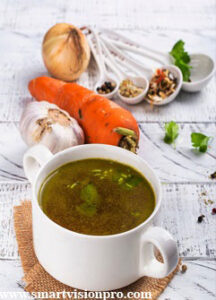-
It is rich in Fiber, Uses of Carrot and Antioxidants

Uses of Carrot contain lots of Vitamin C and carotenoids. These nutrients help your body break down fat and carbohydrates. This means they will lower bad cholesterol levels and can even affect inflammation. They also have high amounts of potassium, which helps blood pressure and regulate heart function. The antioxidant content may protect against heart disease or stroke.
-
carrot is good for digestive health

Uses of Carrot are packed with soluble fibers, which keeps your colon healthy. Soluble fiber passes through the gut and stimulates regular movements. People who are lactose intolerant have an increased risk of constipation after eating too many carbs. Research shows that this kind of treatment may reduce their symptoms. Some studies show that people who eat more than 12 ounces (0.35 liters) per week have less than 2 percent in their stool. Fruits and vegetables containing at least 20 grams of fiber can cause significant weight loss.
-
Contains carrot and vitamins

Carrots contain important nutrients like calcium, iron, phosphorous, potassium, magnesium, manganese, zinc, copper, selenium, iodine, thiamin, riboflavin, vitamin B6, niacin, folate, choline, pantothenic acid, biotin, folic acid and vitamins A, E, K and C. Most vegetables include all these vitamins. However, carrots contain more iron, phosphorus, potassium, magnesium, sodium, fiber, folate and vitamin K, all of which come from animals. Zinc may be especially Uses of Carrot beneficial to those with poor absorption. Because they’re so versatile, it’s no wonder carrots are so popular and widely eaten!
-
carrot is Good source of protein

Carrots are not just delicious, but their skin contains a large amount of protein. Potatoes may be higher in carbs, but they still contain plenty of protein. One cup has about half the recommended intake of protein and 4 grams of whole-grain carbs. Just don’t let them keep piling up and get to the point where your teeth hurt. Eating enough of each type of food (including veggies) every day will keep them in check. If you follow a gluten-free diet, see “The Healthiest Gluten Free Foods You Can Eat.”
-
carrot Reduce risks of cancer

Uses of Carrots contain carotenoids, vitamin A and b, and phytochemicals. Those who eat a lot of fruit, including apples and bananas, are at the highest risk of colon cancer. Consuming carrots may make it harder for your body to absorb certain carcinogens. But, it’s worth noting that consumption of fruits is linked with a reduced risk of prostate cancer, breast and other cancers.
-
carrot Reduce risks of obesity

Consumption of carrots may help with overall diet. Their low glycemic index (GI) and high fiber intake have been shown to help people control their weight. High GI foods cause feelings of fullness that lead to overeating. Carrots may take some away, but they still contain plenty of fiber and a good amount of water. That helps you feel satisfied for longer, which makes them better choices to help prevent bingeing and cravings later on. See here for tips on reducing calories and weight.
-
carrot Boost immune support

Carrots contain beta-carotene, an antioxidant known as lycopene. Lycopene kills off free radicals, such as ones caused by smoke and cigarette fumes. Being exposed to sunlight increases the amount of free radicals that reach your cells. When there aren’t any free radicals, your body is vulnerable to infection. Your body needs oxygen to function properly, especially your brain and those parts that control energy production and movement.
Oxidative stress can cause memory problems, cognitive decline, anxiety, depression and chronic pain. Carrots also have anti-inflammatory compounds called polyphenols. Studies show they help decrease the development of Alzheimer’s and may even protect against the condition. According to Harvard Medical School researcher David Sarnoff, a long-term study involving 100 older adults found that supplement participants had fewer signs of dementia. He believes that carrots are a natural way to improve cognitive function.
-
Promote bone health

Carrots also contain several compounds that may help promote stronger bones. Researchers at Ohio State University examined rats that were fed either a healthy, highly palatable starch diet or just starch. After 3 months, their researchers observed no effect on bone density, but these rats had smaller vertebral fractures (broken bones). Other research is needed to determine how carotenoid-rich carrots influence bone health.
-
Get rid of hangovers

Carrots offer almost zero sugar, calories and preservatives, making them suitable for diabetics. For reference, a banana looks like five cups of sugar, with only four nuts, one vegetable, zero sugars, no oils, a mere two teaspoons of sugar and eight calories. Carrots are the same calorie count-wise. They are quite filling as well, consuming roughly 60 grams of total carbs per serving. Carbohydrates are converted into glucose in the liver, which provides us with energy.
Unfortunately, we can’t really stop eating carbs — they become stored as glycogen in our muscles for future use. We need some form of fuel to work and play; carotenoids — specifically lycopene and lutein — are good options. Studies show that having around 30 grams of carrots daily reduces your risk of developing Type 2 diabetes by 25%. It’s not that surprising since it takes over 80% of your calories in order to accomplish this goal. So yes, adding carrots to your favorite recipes could be healthier.
-
carrot Maintain your eye health

Carrots contain powerful antioxidants known as beta-carotene, which fights against ultraviolet light in the eye. Sunlight damages the cornea, allowing free radical molecules to enter. Antioxidants work by fighting off the damage. By increasing vitamin A levels, carrots may inhibit cataract formation. The USDA recommends getting 600 micrograms of beta-carotene a day, but most people get none.
Another reason to eat it is because carrots are rich in beta-carotenes. Beta-carotenes may be particularly effective at preventing age-related macular degeneration and dry eyes. Though carrots contain beta-carotenes with bioavailability of 80%, some people who consume only fruits like apples, strawberries and blueberries have better results when they combine it with beta-carotenes.
















